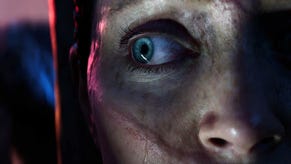Why do Miyazaki's games have such timeless appeal?
Welcome to Souls Week.
Hello! With Elden Rings almost upon us, we're making this week Souls Week on Eurogamer. Over the next few days we'll be picking over From Software's astonishing games - and the astonishing games they have inspired.
To kick things off we're lucky to have this lovely piece from Jason Killingsworth, who is the founder and creative director of publisher Tune & Fairweather. He co-authored (with Keza MacDonald) the book You Died, which examines the masterful design of Dark Souls and explores the vibrant community of players surrounding it.
"The more books we read, the clearer it becomes that the true function of a writer is to produce a masterpiece and that no other task is of any consequence." - Cyril Connolly
It's hard to conceive of an artistic medium more ephemeral than video games.
In the opening pages of his book Extra Lives: Why Video Games Matter, Tom Bissell writes with undisguised melancholy, "One game designer told me that, due to the impermanent and tech-dependent nature of his medium, he sometimes felt as though he were writing his legacy in water."
Yet here we are, on the eve of Elden Ring's release, marvelling at the staying power of the games that Hidetaka Miyazaki and his team at From Software have developed over the past decade. To build a robust and enduring piece of artwork is to stage a revolt against the existential truism in the first chapter of the book of Ecclesiastes that "There is no remembrance of former things; neither shall there be any remembrance of things that are to come with those that shall come after."
I've had the privilege of interviewing Miyazaki on several occasions over the years and the nonchalance with which he describes his working method and design philosophy can be maddening. He wants to make the kind of games he would most enjoy playing, and he's pleased if other people find them enjoyable. Not exactly what an aspiring game designer might call "actionable intel."
Since Miyazaki will not fan out so much as a quill of peacock plumage in dignifying questions about what kind of legacy he hopes to leave to posterity, it falls to us to decipher why his games remain so timeless. Throughout my journalism career and the writing of my Dark Souls book You Died, I've been developing some theories about the source of these games' power.
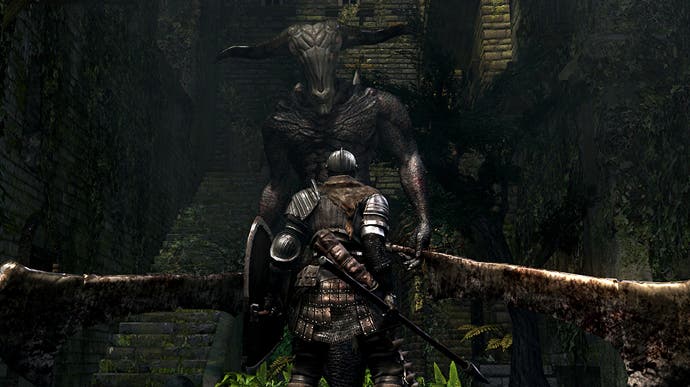
1) The psychological pull of myth
For reasons that psychoanalysts throughout the ages have attempted to divine, certain narrative and symbolic motifs act on the human imagination with more gravitational insistence. Cultures scattered across the globe have generated archetypal mythologies that seem all but plagiarised from one another, despite their never having interacted. Shape-shifting trickster gods, often in animal guise, populate indigenous myths from North America to remote Nordic climes to the Far East.
The Soulsborne games teem with the psychological obtuseness common to mythology, the symbolism of dream worlds. You're jogging in plate armour through a dark wood like one of King Arthur's gallant knights only to confront a hulking bipedal Mushroom Guy. In the game's fantasy, just like in the dream, we accept this scenario without rational protest. As readily as we accepted the logic of Mario's Super Mushroom or the fire-hurling ability conferred by another magical plant. What does it all mean? Hell if I know. But your shrink might have a few guesses.
Joseph Campbell had his mythic Hero with a Thousand Faces. The mechanical challenge of a game such as Dark Souls invites us to embrace our role as the Hero with a Thousand Faceplants. Or what Jung might have called the Collective Knocked-Unconscious.
2) The power of surprise
We are crafted by evolutionary processes to be hyper-sensitive to novelty. In their book Unmasking the Face, Paul Ekman and Wallace Friesen coined the term "the surprise brow." The facial expression we associate with surprise stretches the brow to widen our field of vision, thus stretching the visual net wider to catch information that might be of pressing value. And the riches to be discovered are dizzyingly plentiful.
The Soulsborne games surprise us with curious monster designs as mentioned previously, but there are many pointy implements in their surprise toolbox they use to get our attention. Stepping on a pressure-sensitive floor plate in a narrow corridor sends darts whistling out of a wall behind us. A stony courtyard of the Undead Asylum, which we know to be secure from our first time exploring the area, suddenly collapses under foot during our return visit, plunging us into a subterranean boss encounter. Surprise!
A consistent feature of all these games is the From Software rugpull (patent pending). The player is dropped into a setting full of genre-staple bromides. A gothic and grimy Victorian cityscape. Or Sengoku-era Japan. Or the high-fantasy castles and crypts we've stormed in countless action RPGs.
Then things start to get weird. A demonic, shit-flinging ape resurrects after the first phase of your battle, only to pick up his severed head and redouble his attack with the sword used to decapitate him. Or the werewolf fantasy takes a sudden left-turn into Lovecraftian cosmic horror. Or what you thought was a knight's grail quest serves up a towering phallus creature with appendages dangling off the side of its face like a moustache of grimy slugs. Miyazaki is the master of contrast.
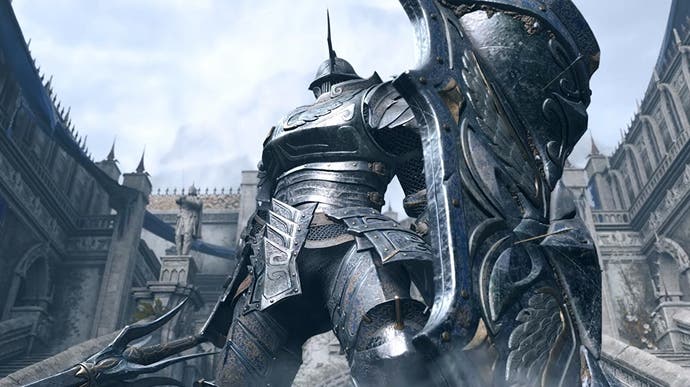
3) A series of interesting emergencies
"Here is another misconception in the Garden of Eden myth: that the supposed unproblematic state would be a good state to be in. Some theologians have denied this, and I agree with them: an unproblematic state is a state without creative thought. Its other name is death." - David Deutsch
We're all susceptible to the lie that spending the sum total of our retirement years glued to a beach chair with a bottomless rum cocktail would be a state of perpetual bliss. And yet we continue to observe the stubborn fact that human beings wither like spoiled fruit the moment they lose a meaningful purpose that justifies the struggle of existence.
Creativity is the default state of thriving and growing organisms. Our brains reflexively dope us with chemical stimulation every time we make progress toward a goal that supports our survival and reproduction (food, sex... yet another boss down in a live-streamed Bloodborne no-hit speedrun). The baseline state of peril that is a From Software game creates a counterintuitively sublime "problematic state" where our creative faculties are maximally engaged.
4) The comfort of an unyielding ruleset
Without dependable structures keeping the chaos of the universe at bay, humans become depressed and anxious. Babies sleep better when wrapped snugly as burritos, redolent of the constrictive surrounds of the womb they've just vacated. Kids thrive within a predictable routine where the ground beneath their feet is not shifting without warning. The healthy balance of order and chaos - constraint and freedom, safety and risk - holds the human psyche together.
Just as creativity within the natural world depends on orienting ourselves to fixed points (inflexible physical laws, gravitational constants) as we navigate existence, the Soulsborne games offer a similarly reassuring set of rules. Following each failed attempt, the enemies even respawn at their original locations like chess pieces on a board. This structural rigidity and confidence in its own design permits us a perfect sandbox in which to play. The sand is mushy and pliable, after all - perfect for play and expression - yet the wooden frame hemming it all in remains airtight.
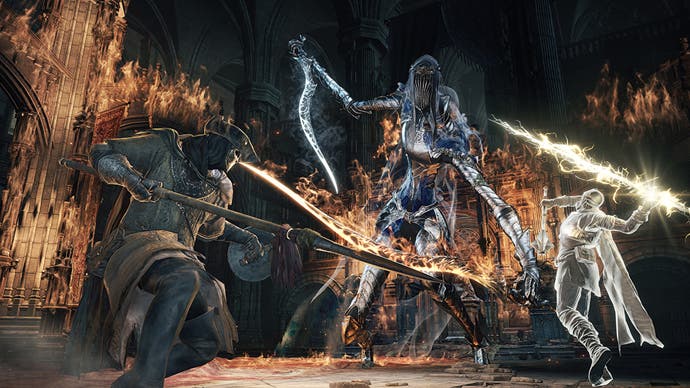
5) The deliciousness of information withheld
The actress Emma Watson once remarked, "My idea of sexy is that less is more. The less you reveal, the more people can wonder." Miyazaki seems to intuitively grasp that, as in literary products, a vast portion of a game's imaginative payload detonates off-screen in our own minds as we puzzle over why things are the way they are. He leaves a wide margin on the page of his creation rather than filling up every blank inch, inviting us to graffiti our own thoughts and questions and monster doodles over and alongside his own. Jolly co-op.
Creative products are a conversation, after all. And the more aggressively the creator imposes his or her interpretation on the proceedings, fills in the silences with chatterbox insecurity, the less room there is for the player to mine epiphanies and imprint themselves on a game experience. It's the ultimate show of respect and an enduring strength of Miyazaki's soft-spoken but fiercely confident nature, which manifests in the timeless games he ushers into being. A statement is final, after all, but a question can linger for centuries.
When a creator speaks softly and only at such times that a contribution feels worthwhile, we lean forward to better hear what they have to say. And Elden Ring's imminent release will be a welcome deluge after several years of patiently watching the thought bubble of Miyazaki's creative imagination fill up with rain.
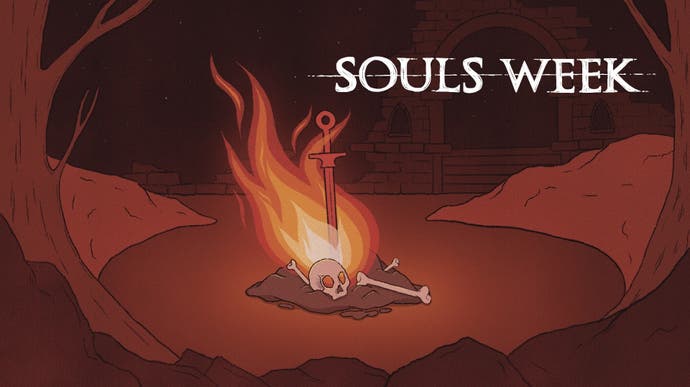






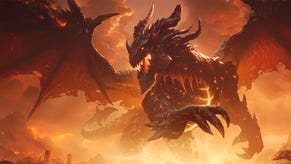
.png?width=291&height=164&fit=crop&quality=80&format=jpg&auto=webp)
